Many people say that they want to quit drinking to lose weight. Shedding unwanted body fat is one of the most visible benefits of quitting alcohol.
In this article, I’m going to explain why this is the case. I’ll also discuss why alcohol and exercise don’t mix very well. Since getting fit has played such a huge role in my recovery from alcohol addiction, I’ll provide you with an in-depth understanding of the benefits of exercise for alcohol recovery.
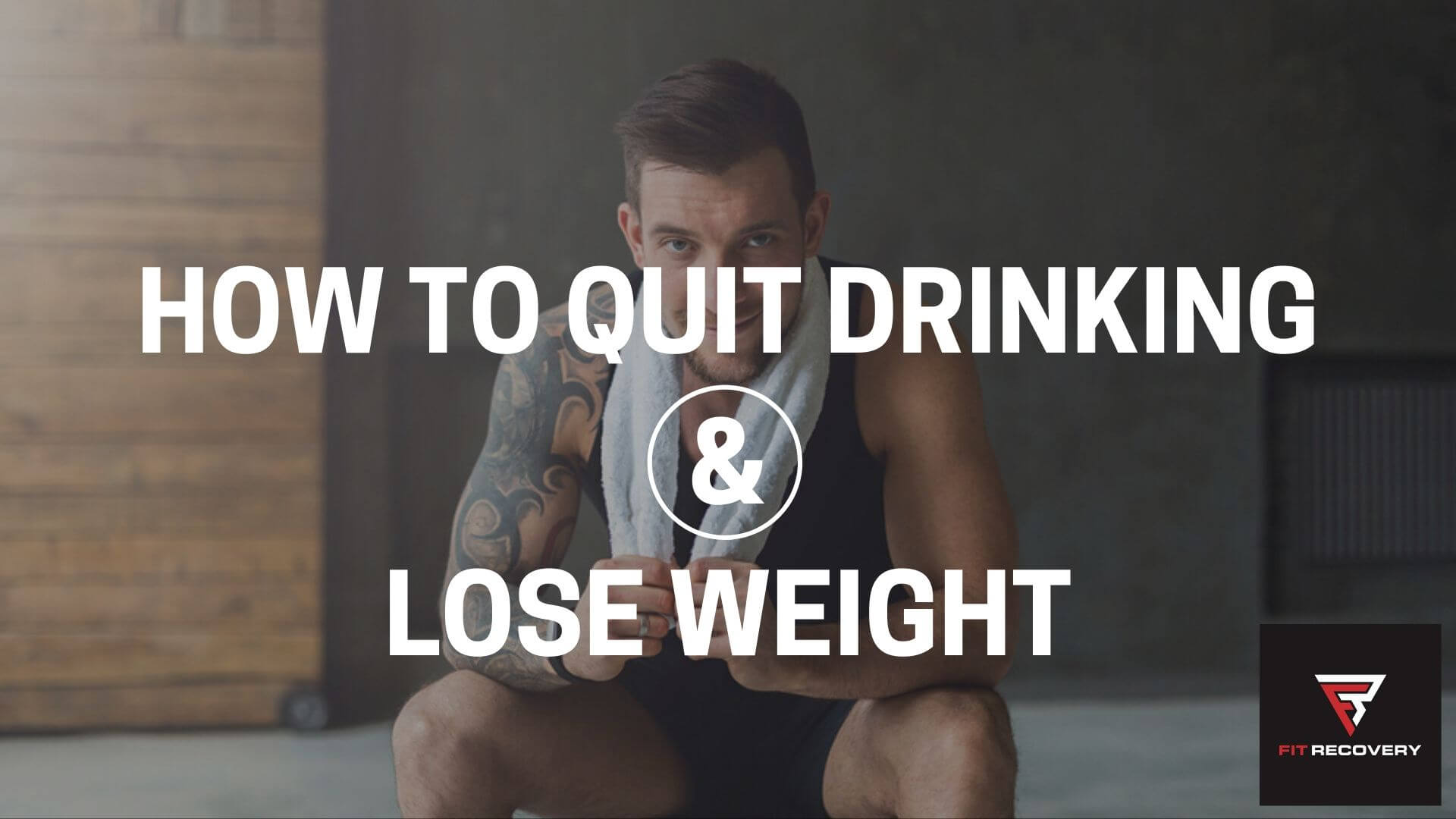
Three years ago, I had a face that was perpetually bloated from drinking. I also had about 30 pounds of unwanted body fat. Since quitting and making fitness a priority, I’ve lost all of that weight and replaced it with solid muscle.
Some people who successfully quit consuming alcohol lose weight simply because they’re no longer poisoning their bodies. But if you’re proactive about getting in shape, your fitness efforts will have a synergistic effect along with your teetotaling.
Read on to learn how to replicate and optimize this process for yourself!
Alcohol and Fat Storage
Alcohol sabotages efforts at fat loss for a very simple reason.
When we consume alcohol, our bodies recognize it as a poison. The liver, which plays a huge role in determining metabolism and turning calories into energy (or fat), immediately starts processing the alcohol into less toxic byproducts – water, acetic acid, and acetaldehyde.
When your liver is focused on processing alcohol, a large percentage of the calories that you consume along with the alcohol is stored as fat.
Furthermore, since alcohol is a highly refined sugar, its consumption causes an insulin spike. Insulin is produced in the pancreas to regulate your blood sugar levels. When a large amount of insulin is released to prevent alcohol from escalating your blood sugar, it often over-corrects and wipes out much of the blood sugar you need to feel normal.
As a result, you get hungry and consume more calories. If you’re anything like I was before I quit, you also keep drinking – and eating – in a vicious cycle that can last long into the evening.

The average person can withstand this kind of ethanol and calorie barrage once in a blue moon. But it’s no coincidence that a telltale sign of a heavy drinker, alcoholic or not, is weight gain – and we’re not talking toned muscle.
What About Skinny Alcoholics?
But what, you might ask, about those skinny alcoholics who drink most of their calories and never seem to gain weight?
You might find them on park benches or, if they haven’t had their downfall yet, at glamorous parties in big cities.
It’s important to understand that over time, heavy drinking severely damages the ability of the stomach and intestines to absorb nutrients. Skinny alcoholics often consume alcohol instead of quality foods that they need to maintain muscle and bone tissue.
Alcohol itself gets burned in the liver and provides some short-lived energy. It does not get turned into fat (it causes food consumed with it to get turned into fat), nor does it provide valuable raw material for repairing tissues.
When alcohol constitutes the majority of calories in your diet, you may actually lose weight while your body deteriorates from the stress of processing a poison 24/7.
Most people’s bodies can process one drink per hour; the average alcoholic can process only slightly more than this amount. So if you’re consuming 5-10 drinks per day, you’re spending your sleeping hours blocking fat loss and wreaking havoc on your blood sugar and, in turn, your metabolism.
Science is beginning to demonstrate that fat loss is not simply a matter of calories in and calories out: A healthy metabolism is required for a healthy body composition.
A year before, I actually managed to lose about 15 pounds without quitting drinking. How did I do this? By refusing to consume any calories along with alcohol in the evenings and working out very hard every morning in a dizzying alcoholic haze.
While I lost weight, I felt beyond miserable. My vision began to deteriorate and despite burning some fat during my morning workouts, I had to work incredibly hard just to burn off the alcohol I’d consumed the night before.

My anxiety levels were through the roof because I was poisoning my body and neglecting to give it the nutrients that it really needed to repair itself.
I remember dragging myself to work one morning, thinking about how terrible I felt despite being a “success” on the weight loss front. I ultimately gained about 35 pounds back because drinking, dieting, working out, and being sleep deprived is an unsustainable combination.
I’m lucky that I didn’t damage my gut or my relationships badly enough to become a skinny alcoholic on a park bench.
What Happened When I Quit
I try to make it very clear on this site that exercise alone cannot save you from alcohol addiction. However, once you’ve resolved to quit or cut down on alcohol, exercise can play a huge role in your efforts to lose weight.
It can also play a huge role in helping you to gain muscle mass while staying lean.
The quality of your workouts, and of your ensuing mood boost, will skyrocket the longer you stay away from alcohol.

Several years after my toxin-infused workouts, I live in a much different mental and physical landscape. I lift weights, run sprints, go for bike rides, and spar with a kickboxing partner.
I’m meaningfully stronger and leaner than I was just a few years ago. Because I get quality sleep, I look years younger than I used to. I’ve lost 30 pounds of fat and replaced it with 35 pounds of muscle. My energy levels are much higher and my face is never bloated anymore.
My routine for the past several years has been simple.
In the morning, I do a 20-minute workout, consisting of cardio, bodyweight exercises, and stretching. Lately, I’ve been riding my bike a mile to a field and running 5 or 6 sprints at 100% effort. Then I’ll do the PASS routine from my book, which I’ll describe below.
At night, I lift weights. Usually four or five times per week.
Lifting heavy weights is my favorite form of exercise because it allows me to transform excess energy, negativity, and apathy into a sense of achievement.
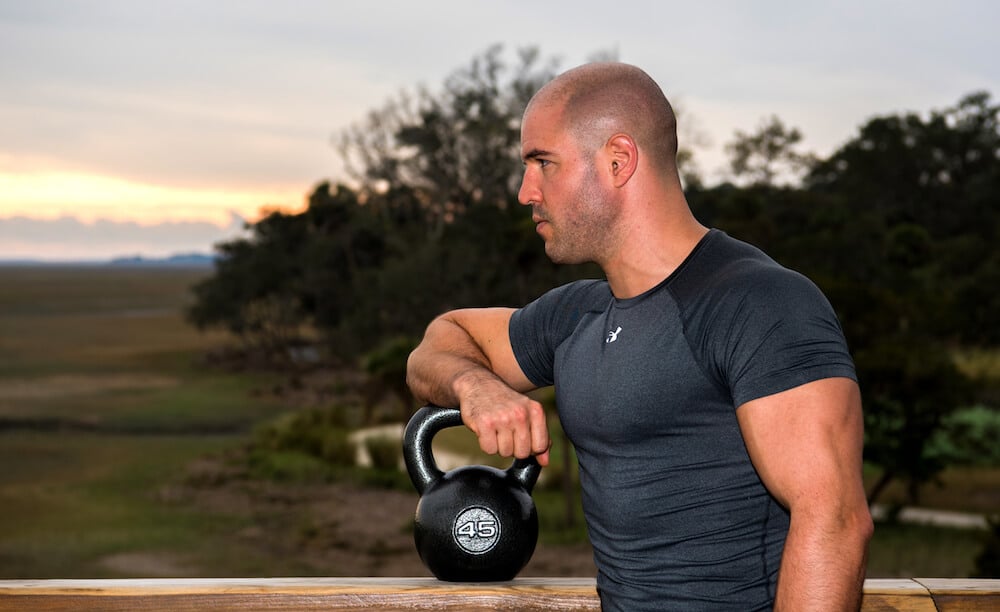
My workouts center around compound exercises like deadlifts, squats, rows, and bench presses. I focus on one compound lift per workout and then hit the same muscle group with different exercises. My routines are constantly changing and I draw from kettlebell programs, Olympic lifts, TRX, and CrossFit workouts.
Nothing is like the experience of lifting heavy weights. The word “heavy” is a relative term; it describes a weight that you can handle for 1-6 repetitions. Of course, it’s important to warm up first for a few sets.
When I quit, I gradually rewired my brain to anticipate a healthy endorphin rush instead of a cocktail. I’ve reframed the gym as my cathedral. I see weightlifting as my meditation and therapy wrapped into one activity with a myriad of other health and aesthetic benefits.
Once you rewire your brain in this way, it will take willpower to decide not to do your workouts.
I used to hate training my legs. These days, heavy deadlifts are my Xanax.
The PASS Routine
If you’re looking for a brief workout that can help you develop some discipline, you’re in luck.
In my book, Drinking Sucks!, I explain how I do a brief workout every morning that takes less than five minutes.
I’ve been doing this mini-workout along with my cardio for nearly two years. I honestly can’t recommend it enough for stimulating (and calming) your nervous system and your mind.
I call it the PASS Routine:
- Pushups – Pick a number and do them
- Air Squats – Pick a number and do them
- Stretching – Yoga hip openers
- Serenity – During the stretches, breathe in deep and count for 10 seconds as you exhale
I recently heard from a coaching client who’s bravely tackling PAWS head on. Along with some basic supplements, he said that this daily routine is helping him get past some of the anxiety and anhedonia that occurs during PAWS.
This morning I got a few pictures of myself working through the PASS Routine.
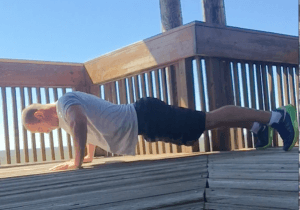
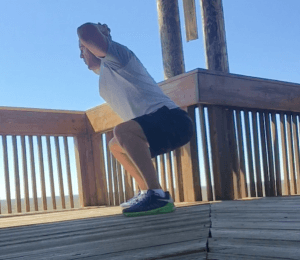
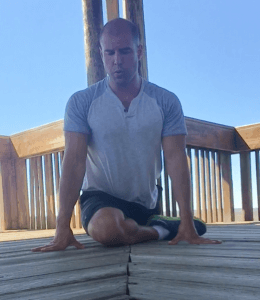
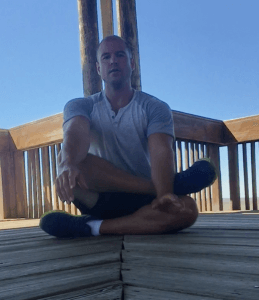
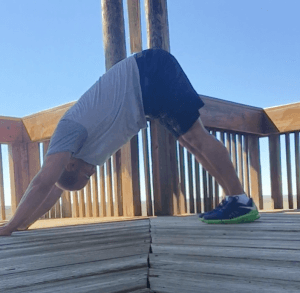
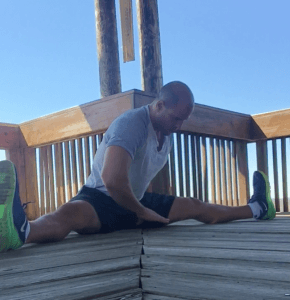
I’m sure the yoga form police would have been after me, since I’m definitely no yogi. But the routine still makes me feel incredible every morning.
And since I’ve been doing the PASS Routine for so long, I’ve noticeably improved in the following areas:
- Flexibility
- Mind-body connection
- Discipline
- Mental clarity
- Metabolism
Once you quit, your metabolism will improve naturally. Why not rev it up even more with a quick morning PASS Routine? Research has shown that 1 minute of all-out exercise each day has the same benefits as 45 minutes of moderate exertion! (source)
The Brain Benefits of Exercise
While quitting consuming alcohol to lose weight and/or gain muscle is very effective, I want to digress for a moment to discuss the brain benefits of exercise.
Isn’t a sense of well-being the reason you want to quit in the first place?
To achieve a sense of well-being, you first need to have a healthy brain that is functioning properly.
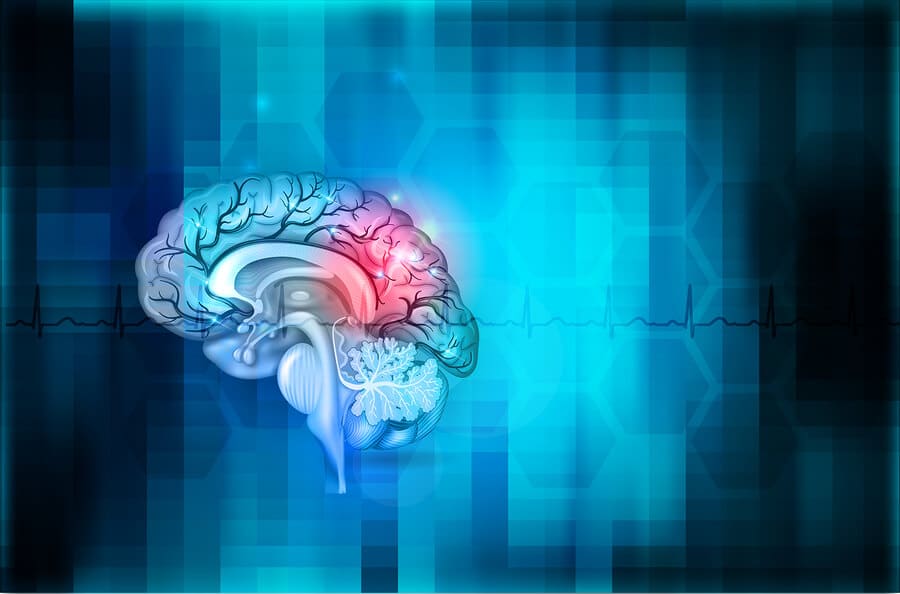
Here are some of the brain benefits that can be enjoyed by working out:
Endorphins: Exercise releases painkilling and euphoria-inducing neurochemicals called endorphins, which can make you feel good for several hours following a workout. Low levels of endorphins can be genetic and are associated with feeling sad, sluggish, or disinterested in everyday activities.
Releasing endorphins through exercise can help people shrug off setbacks and even overcome serious trauma.
Serotonin: Aerobic exercise in particular has been shown to increase production of serotonin, which is important for healthy sleep and relaxation. Working out sends a stream of amino acids into the muscles, except for tryptophan, which makes its way to the brain and serves as a precursor of serotonin.
Oxygen is also necessary for serotonin production, which may explain why cardio helps the brain produce more of this brain chemical.
Dopamine: This feel-good chemical is involved in pleasure, reward, and motivation. Working out stimulates dopamine production in much the same way as drugs and alcohol, without all of the negative side effects!
Since dopamine affects learning and motivation, it helps the brain anticipate workouts as an alternative reward to addictive substances.
Norepinephrine: Exercise increases levels of this neurotransmitter, which is produced in response to stress and regulates other neurotransmitters that directly inhibit stress. In this way, exercise allows the body to “practice” communication between its stress response systems.
When our brain, adrenals, heart, and other organs involved in stress response are fine-tuned by exercise, we are less likely to overreact to everyday stressors.
BDNF: Working out releases brain-derived neurotrophic factor (BDNF), which helps the brain produce new neurons and repair existing ones.
BDNF is a relatively recent discovery that was a missing piece of the puzzle for scientists who long suspected that exercise “rewires” the brain, but couldn’t pinpoint the exact mechanism.
Inflammation: Regular exercise reduces inflammation throughout the body. Along with damage caused by free radicals, inflammation is one of the fundamental causes of disease. Cancer, heart disease, and neurodegenerative conditions (like dementia) all have inflammation as a common contributing factor.
As you can see, exercise helps the brain in a myriad of ways. Over time, these benefits become even more pronounced, as exercise helps the brain to forge new pathways and repair itself through a phenomenon called neuroplasticity.
Don’t Forget Nutrition!
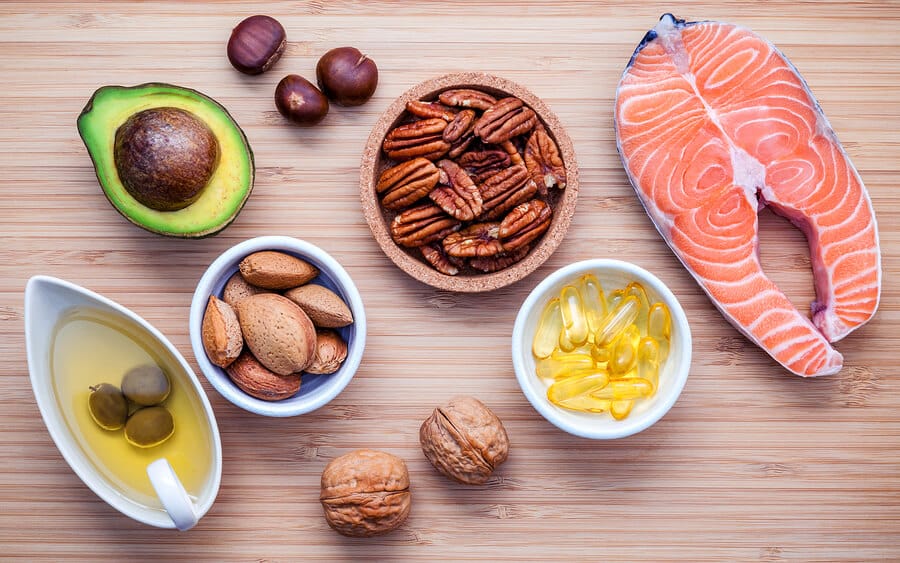
The primary lesson for anyone who succeeds at quitting is this:
What you put into your body matters!
After I quit and educated myself about nutrition and supplementation, the idea of putting toxic ethanol into my system on a daily basis started sounding absolutely revolting.
If you really want to quit drinking and lose weight, this article can help you tackle your health holistically and make real progress with your daily mood: Top 20 Supplements For Detox and Recovery.
If you’re anywhere near as addicted to alcohol as I once was, I strongly recommend that you start taking Calm Support to make your recovery more comfortable.
Quitting Drinking Weight Loss: Conclusion
Fitness, and self-improvement generally, can provide fantastic motivation for quitting.
Many people who quit lose weight without exercise, but in my opinion, the benefits of exercise are way too good to forego.
If you’ve enjoyed this article, then you’ll love my book. And if you have any questions about how to quit and lose weight, please leave them in the comment box below.

FAQ:
What happens after 4 days of not consuming alcohol?
Depending on how much you drank and for how long, you may experience profound improvements in health and well-being within only 4 days of quitting alcohol. Moderate daily drinkers report enhanced mental clarity, reduced bloating, and more natural euphoria. However, if you’ve been a heavy drinker for months or years, you may still be on the alcohol withdrawal timeline.
How much weight can you lose from quitting?
How much weight you lose will depend on how many calories of alcohol you were consuming. It also depends on whether your habit damaged your metabolism by impairing sleep and overburdening your liver, which is a critical organ for burning fat. For maximum weight loss, avoid sugar or processed foods after quitting.
Does alcohol cause belly fat?
When you drink alcohol, other calories consumed alongside it get turned into fat so that your liver can focus on breaking down toxic alcohol. Most alcoholic beverages also contain substantial calories that will end up as belly fat if you’re consuming more calories than you’re expending.
Author
-
A decade+ addiction-free, Chris Scott, the visionary founder of Fit Recovery, passionately guides Fit Recovery 2.0 Members toward a vibrant, healthier lifestyle. Through the integration of groundbreaking nutritional strategies, transformative reframing techniques, neurolinguistic programming, and dynamic pro-recovery habit systems, he inspires individuals to boldly take charge of their lives and break free from alcohol. Chris is celebrated as a Professional Member of the Alliance For Addiction Solutions. Moreover, he is the proud author of the bestselling book "Drinking Sucks!" which stands as a vital beacon of hope for those yearning to quit drinking. Additionally, he created the celebrated online program Fit Recovery 2.0, designed to provide unwavering support for individuals embarking on their recovery journey.
View all posts Fit Recovery Founder & Director



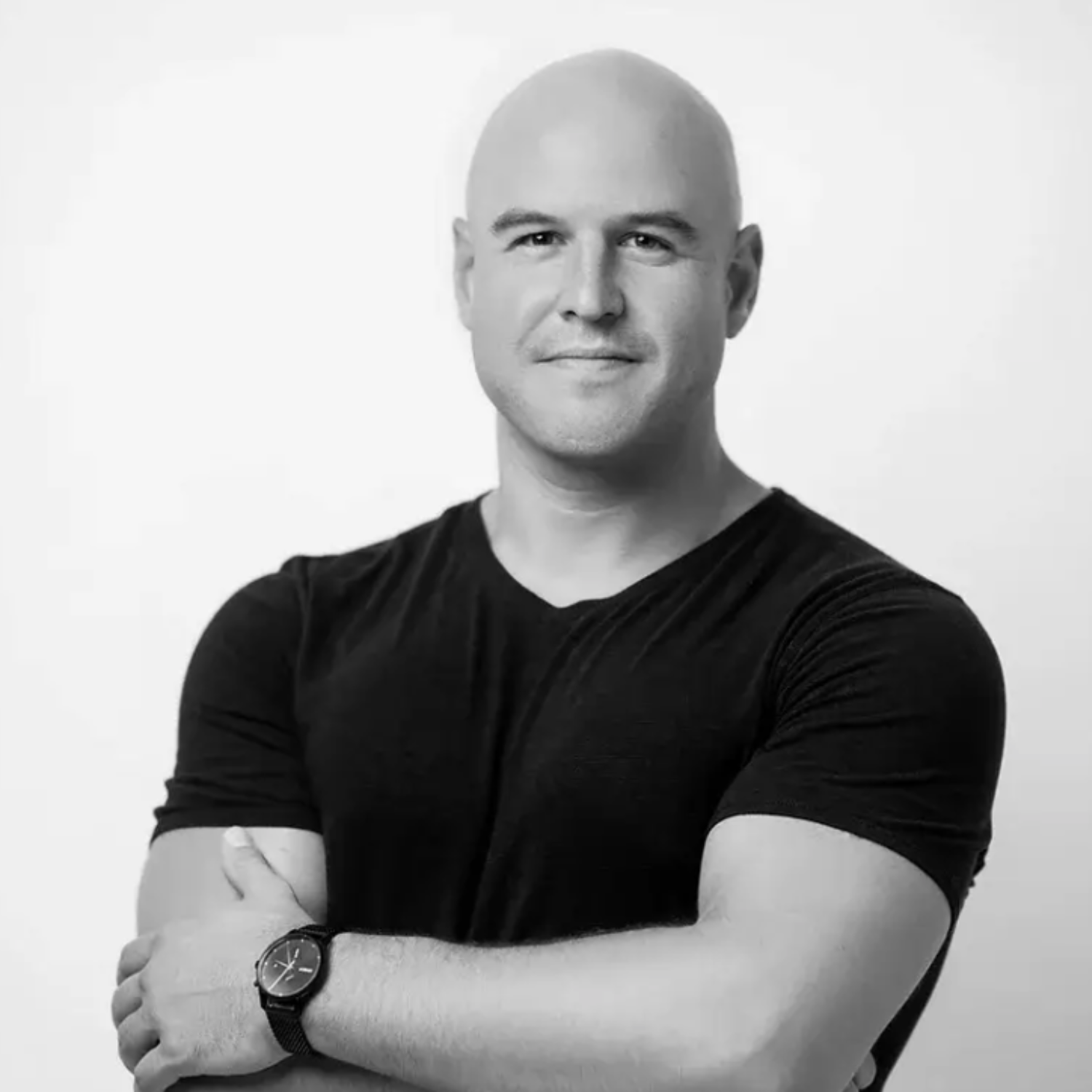



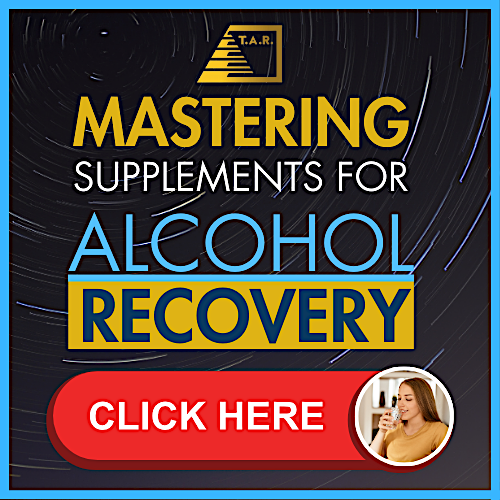



Thankyou Chris for describing what you did and are doing. I decided to stop drinking alcohol to lose weight a few days ago. Making that decision made me feel good and I just spontaneously emptied the fridge to prepare for changes I will make in my diet. Reading this article was just the helping hand I needed
I loved this blog post! I learned so much while reading it.
Glad to hear this Arthur!
Thank you for sharing this! I recently quit drinking cold turkey, after previously drinking heavily throughout most of my 20s. And this article only reinforces my decision and makes me feel empowered. It’s only been 3 weeks and I’ve noticed a phenomenal change in my overall health. The way I feel now is enough for me to never touch a drink ever again. I had no idea how much of a fog I was living in. And so many ailments have suddenly disappeared. After reading up on what alcohol does to your body/liver and how it contributes to weight gain… Read more »
Awesome BP, keep up the great work!!
Wow you nailed it Scott. There are hundreds of articles on this topic but found yours the most genuine, informative and motivating. I recently took a break from alcohol and have already lost a few pounds. I have continued my exervise routine ( mix of cardio, resistance and yoga/ meditation). Some of your exercise and yoga pose helped me refine my routine. Thanks a lot -Sajag
Thank you Sajag! Keep it up!
Very nice article, great tips and motivation! I quit drinking on April 22 and I already feel a difference. Before I was always too tired to exercise, but now I wake up feeling more refreshed and have a lot more energy to exercise. I am also finding it easier to eat healthier since quitting. The PASS routine looks great and I am going to try it out!
Thanks Lindsay, thats inspiring! Congrats on your decision and glad you’re feeling better.